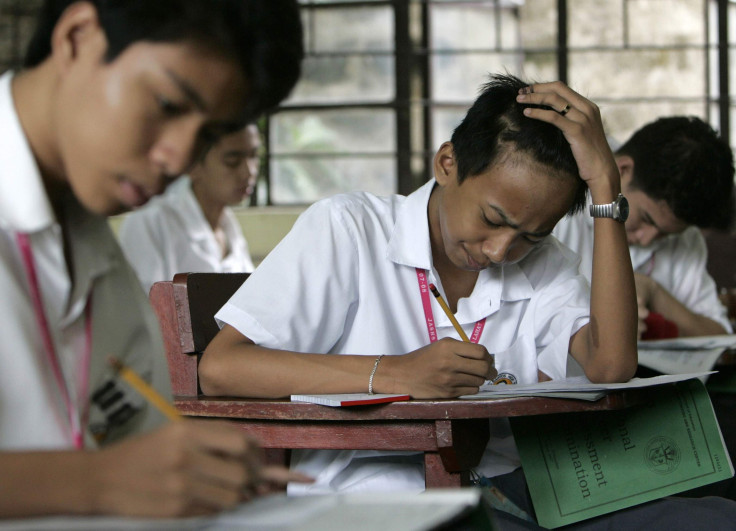Teens Report ‘Alarming’ Stress Rates Compared To Adults, Survey Shows

Being a teenager has always come with its unique share of hardships. Sandy Olsen knew firsthand the pitfalls of high school dating, and Dawson Leery certainly endured more than enough senior year headaches. But according to a new survey of teenagers and stress, U.S. teens’ stress levels now outpace those of adults, meaning the proverbial “troubled teenager” might be more troubled than previously thought.
In a study titled “Stress In America: Are Teens Adopting Adult’s Stress Habits?” researchers from the American Psychological Association noted that more than a quarter of U.S. teens experienced extreme stress during the school year, a figure that dropped to 13 percent once summertime rolled around. On average, teens reported an overall stress level of 5.8 on a 10-point scale, compared to adults who reported an average of 5.1.
“What’s more, few teens report their stress is on the decline: only 16 percent report that their stress level has declined in the past year,” the authors reported. “At the same time, 31 percent of teens say that their stress level has increased in the past year and 34 percent believe their stress levels will increase in the coming year.”
Stressors ranged from homework to grades, balancing time between extracurricular activities to friendships.
“It is alarming that the teen stress experience is so similar to that of adults,” Norman B. Anderson, the APA’s chief executive and senior vice president, said in a statement. “In order to break this cycle of stress and unhealthy behaviors as a nation, we need to provide teens with better support and health education, at school and at home, at the community level and in their interactions with health care professionals.”
Researchers surveyed 1,950 adults and 1,018 teens in August 2013 for the study. The report found that one-third of teens who felt stress said the stress made them feel sad and depressed. More than one-third of stressed teens reported feeling fatigued or losing sleep because of stress. Nearly one-quarter of those surveyed said they had skipped a meal because of how stress affected them.
"Our study this year gives us a window in looking at how early these patterns might begin," clinical psychologist Norman Anderson, the association's CEO, told USA Today. "The patterns of stress we see in adults seem to be occurring as early as the adolescent years - stress-related behaviors such as lack of sleep, lack of exercise, poor eating habits in response to stress."
The report warns of the health risks teens face because of chronic stress. They include physical and mental conditions such as a lowered immune system, sleeplessness, irritability and anger.
To some mental health experts, however, the results of the survey come as no surprise. Many say it only makes sense that increased pressure to excel in standardized tests and an early emphasis on college acceptance would increase teenagers’ stress levels.
“You have to be able to perform at a much higher level than in the past, when I was in high school,” Dave Forrester, a counselor at Olympia High School in Olympia, Wash., told NBC News. “We have so many choices for kids. They need to grow up a little faster about what they want to do and how they’re going to do it.”
© Copyright IBTimes 2025. All rights reserved.






















